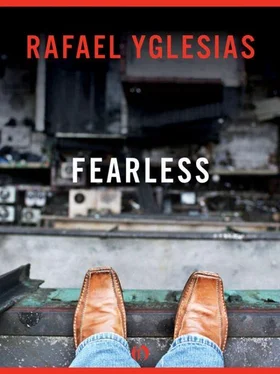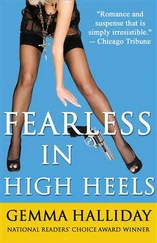She was so powerful and in total control. She had the strength to hold the chaos of the universe together. Why did she pretend to need him?
“Sure, honey,” he sighed and leaned his head on her shoulder. “Take me home.”
POSTTRAUMATIC
STRESS
SYNDROME
In early November Carla agreed to attend a group meeting of survivors organized by Dr. Perlman to be held the week before Thanksgiving. Although Dr. Perlman was paid by TransCon to deal with the effects of crashes on their employees, Manny was assured by Brillstein it was safe for Carla to go. The lawyer explained that all parties had agreed to consider the group sessions confidential and exclude them from the suits. Manny was doubtful. He found excuses to call Brillstein back and ask for this reassurance again and again. Manny was suspicious of everything about the airline since he had learned that the typical insurance payment for a dead child was roughly fifty to one hundred thousand dollars.
“That’s why they don’t give a shit whether they got infant seats,” Manny mumbled to Carla in their bedroom the night Brillstein had broken that particular bad news to him. “No fucking reason to. Only gonna cost them fifty grand for a dead baby.” He spoke softly and yet the words “dead baby” were like punches to Carla’s stomach.
“Don’t say that,” she groaned. Her husband didn’t hear her protest. He had already gone on into the bathroom, slamming the door. The old pipes squealed as he started a bath. Usually he took showers. He took baths when he had a fight with his boss or pulled a muscle.
Carla refused to go to the group meeting at first. To her surprise Manny didn’t argue or coax. A few days later Dr. Perlman phoned. Manny insisted she talk to him. Or listen anyway. Manny unraveled the tangled wire from the base of a large white desk phone. He had rescued it from the garbage where he worked. An impatient tenant had discarded the phone because the speed-dialing buttons seemed dead when really all the phone needed was new batteries. Manny stretched the wire until he reached Carla’s position on the bed. Manny held the receiver to her ear and said loudly, “Just listen to what he has to say.”
She was embarrassed that the doctor might hear Manny so she said, “Hello,” to cover up.
Perlman had a cheerful voice. “How are you doing?” he said casually.
She took the receiver from Manny. He let go reluctantly. Suspicious and vigilant, he stayed at her side and nodded grimly for her to respond.
“Okay,” she mumbled back to the cheerful voice.
“Not great, huh? They told me your cast is off. Your leg was fractured, right? I broke my right leg a couple years ago. It ached in a funny spot for months whenever it got real humid — it hurt right inside the bone. Yours bother you?”
“Yeah. Sometimes.” She answered Dr. Perlman’s questions with a word or two at most; she didn’t hold back, and yet she didn’t add anything more than the minimum necessary to be polite.
“Been having trouble sleeping?” he asked.
“No. I sleep plenty.”
“Too much, maybe? More than you need?”
“Maybe.”
Dr. Perlman explained that he was collecting all the survivors he could to meet in a group and talk. “You don’t have to talk,” he said. “You can just listen.”
“Group therapy,” she said. She knew about it from television, although she had never heard of a group being more than six or seven people. This would have to be dozens at least; if the doctor got them all to come they would be ninety-eight. That’s how many survived the crash. The number blinked in her head a lot—98–98—98. She thought about the number as if the symbol itself were significant, noticing details: two short of 100; the first digit just one higher than the last; full of curves, almost an 88 if you closed up the 9 a little. Ninety-eight. She said the words to herself sometimes: their music was special. If Bubble had lived they would have been 99, a pretty visual repetition. And a happier sound: ninety-nine. She knew these thoughts were goofy. But they were among the easiest she had had during the four months since the crash. Four months didn’t seem like a long time to her. Manny would say, “It’s been four months,” as if that were forever. He was impatient with her. He complained about her sleeping until noon, staying indoors all day only to go back to bed at ten. Of course she didn’t sleep straight through. She’d wake up in the middle of the night, usually about two A.M. She’d sneak into the kitchen to eat odd combinations of food: ice cream, then a peanut butter sandwich, then some yogurt, and finally a plate of sticky pasta with cold sauce. She gained weight for the first time in her life, except of course for the months she carried Bubble. Her usually nonexistent belly, just an inwardly curved valley between her jutting hipbones, filled in and became a level surface. Manny said he liked her a little fatter. “You ain’t fat,” he said. “You were skinny. Now you’re normal.” She had sex with him once a week or so to keep him pacified, but their lovemaking had no taste and no heat, like the cold pasta and gelled sauce, only it didn’t even fill her up.
She did go out. She went to church regularly and prayed for Bubble’s soul. Not to the church of her girlhood, Saint Anthony’s, but to Saint Patrick’s Old Cathedral, just across the street from her apartment on Mulberry. She told Manny she preferred the shorter walk, but what she really preferred was the older stone building and the glimpse of its ancient graveyard, a patch of elegant grass and smoothed headstones protected from the dirty city. And she became fond of the small, gray-faced priest who led the daily masses. Monsignor O’Boyle moved with extreme slowness, not bending his knees or elbows, like a robot. But his wide face trembled all the time, the lines and loose skin as floppy and wrinkled as a bulldog’s. His watery light blue eyes were sad and trusting. She liked him so much she even went to confession.
Monsignor O’Boyle pitied her. After he heard the story of the crash, no sin she admitted increased her penance from more than a token Hail Mary. Not since she was a little girl had she gone that often. She went almost every day, sitting at the back of the old church, watching Monsignor O’Boyle conduct the mass in his slow motions, his pale face then as still as stone, his gestures a copy of the day before. What was once boring soothed her. Carla believed she had found a routine she could follow for the rest of her life: going to church, telling her sins to Monsignor O’Boyle, and taking care of the soul of her beloved son.
As soon as she agreed to attend the group therapy session this safe world became dangerous. For more than a month she had been doing the household shopping, challenging herself to get over her fear of the outside. It wasn’t far to go, just down the block to the stores on her street. But the day after saying yes to Perlman, a kid on a motorcycle came roaring around the corner. He drove his huge bike right up onto the sidewalk and whizzed at Carla. She had to fling herself against a car to avoid being hit. She was so shaken she needed a neighbor to help her home. After that she refused to go out without an escort. Even to church. And yet going to church also turned out not to be safe anymore.
On the Sunday before the group meeting, Monsignor O’Boyle’s right foot skidded as he turned from the altar. He had to lean on the altar boy to prevent a fall. Carla gasped. Her best girlfriend, Ginny, was with her. Manny had to cover for one of the doormen that day and he arranged for Ginny to come in and visit. Ginny now lived in Staten Island with her three kids and a fat husband whom everybody suspected was in the Mafia because he never worked and yet he got richer every year.
Читать дальше












